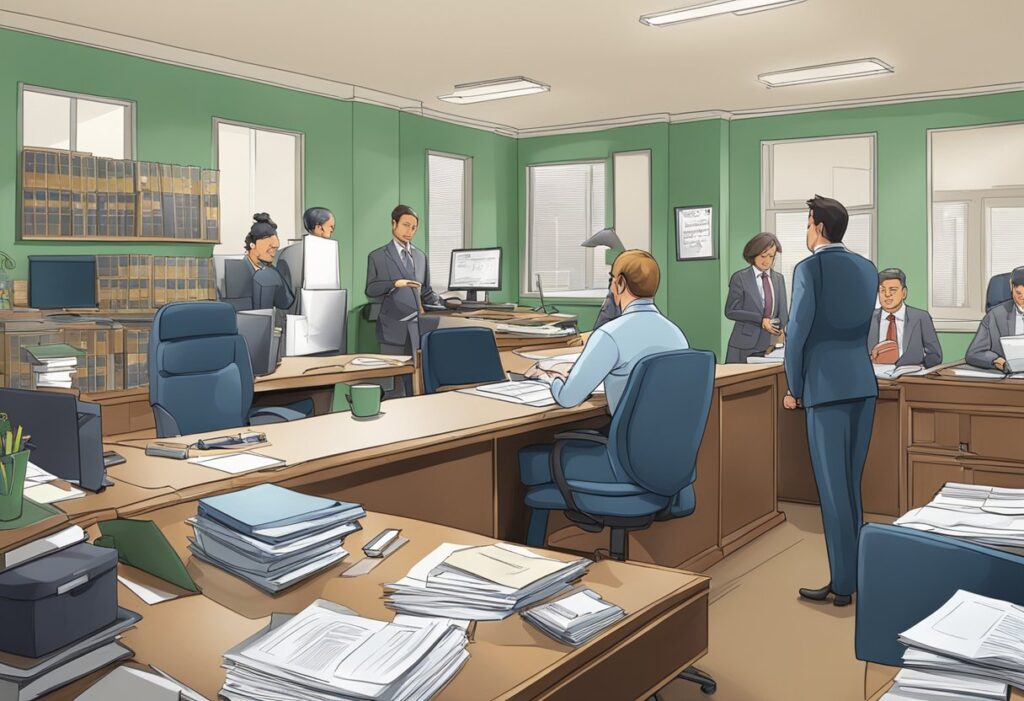Head injuries can profoundly impact a person’s life, often leading to physical, emotional, and financial challenges. When someone suffers a head injury due to another’s negligence, they have the right to seek compensation. Head injury solicitors specialize in guiding individuals through the complexities of head injury solicitors compensation claims, ensuring that victims receive the support and financial help they need.

These legal professionals understand the nuances of brain injury cases and can provide essential assistance throughout the claims process. They help clients gather necessary evidence, navigate medical hurdles, and understand their legal rights. With their expertise, victims can focus on recovery while knowing that their interests are being protected.
Engaging a head injury solicitor can make a significant difference in outcomes. They leverage their knowledge of personal injury law to build strong claims, maximizing the chances of a successful resolution. With proper legal support, individuals can effectively reclaim their lives after experiencing such a traumatic event.
Understanding Brain Injuries and Legal Recourse
Head injury solicitors
Brain injuries can have serious and lasting effects. Knowing the types of brain injuries and the legal options available is crucial for victims and their families.
Types of Brain Injuries
Brain injuries generally fall into two categories: traumatic and acquired. Traumatic brain injuries (TBIs) result from an external force, such as a car accident or a fall. Common symptoms include confusion, headaches, and memory problems. A concussion is a mild form of TBI, but it can still lead to significant issues if not properly treated.
Acquired brain injuries, on the other hand, occur due to internal factors like strokes or medical negligence. These injuries can cause functional impairments that challenge a person’s daily life. Understanding the distinction helps individuals recognize their situation, especially when considering a compensation claim.
Importance of Seeking Legal Advice
Consulting a solicitor specializing in brain injuries is critical. They guide victims through the legal process and help assess the potential for a compensation claim. Legal experts can explain the nuances of personal injury law and the specific criteria required for claims.
Having legal representation ensures that victims receive appropriate care and follow the correct procedures to file claims. Additionally, solicitors can handle negotiations with insurance companies, increasing the chances of a fair settlement. This step is vital because many victims may be unaware of their rights and the compensation to which they may be entitled.
Compensation for Brain Injury Victims
Compensation varies depending on the type and severity of the injury. For TBIs and acquired brain injuries, victims may receive funds for medical expenses, lost wages, and rehabilitation costs. In cases involving medical negligence, depending on the circumstances, victims might receive further compensation for emotional distress and long-term care needs.
The average compensation can differ widely based on state laws, the details of the incident, and the evidence presented. Knowledgeable solicitors can provide estimates and help victims navigate the complexities of compensation claims. Ultimately, understanding the compensation landscape allows victims to seek the justice and support they deserve.
Navigating the Legal Process
Head injury solicitors
Navigating the legal process for head injury claims requires clear understanding and careful steps. Key aspects include selecting the right solicitor, exploring how rehabilitation plays a role in compensation, and knowing time limits and payment agreements.
Choosing the Right Head Injury Solicitor
Selecting a personal injury solicitor experienced in head injuries is crucial. A specialist solicitor will have the needed knowledge to handle such complex cases. It’s important to look for solicitors who have a proven track record in brain injury claims and can provide tailored legal advice. Consulting with multiple solicitors can help individuals find one who communicates well and understands their unique situation.
A good solicitor will explain the process clearly and provide support throughout. They should also assess the potential compensation amount based on the severity of the injury and any rehabilitation needs.
The Role of Rehabilitation in Compensation Claims
Rehabilitation can significantly influence the outcome of compensation claims. After a head injury, victims may need physiotherapy, occupational therapy, and other treatments. This rehabilitation not only aids recovery but can also serve as evidence of ongoing needs in a claim.
Compensation can cover the costs of rehabilitation, ensuring individuals receive the medical help they require. Proper documentation of all treatments, including receipts and progress notes, is vital. This information helps the solicitor illustrate the impact of the injury on the individual’s daily life and overall well-being.
Understanding Time Limits and No Win No Fee Agreements
Every claim has specific time limits. For head injury claims, these limits usually start from the date of the injury or when the victim became aware of their condition. Missing these deadlines can lead to a loss of the right to claim compensation.
Many solicitors offer no win no fee agreements, which means clients pay only if they win their case. This arrangement reduces financial risk for victims. Understanding these agreements is essential to ensure that all aspects of the claim are clear before proceeding. Clients should ask questions about any fees to avoid surprises later.
Frequently Asked Questions
Understanding the specifics of head injury claims can help individuals navigate the legal landscape. The following points address common concerns related to compensation, legal steps, and the impact of head injuries on settlements.
What factors influence the compensation amount for a brain injury claim?
The compensation amount for a brain injury claim can vary widely. Factors include the severity of the injury, medical expenses, lost wages, and the pain and suffering experienced by the victim. Each case is unique, and these elements are carefully evaluated during the claims process.
What are the legal steps to take after sustaining a head injury?
After sustaining a head injury, it is crucial to seek medical attention first. Next, a person should gather evidence, such as medical records and witness statements. Finally, contacting a head injury solicitor to guide them through the claims process is essential.
How is liability determined in head injury cases?
Liability in head injury cases is determined based on negligence. This involves proving that another party failed to take reasonable care, leading to the injury. Evidence such as accident reports or video footage may be used to establish fault.
Can future medical expenses be included in a head injury settlement?
Yes, future medical expenses can be included in a head injury settlement. This means estimating ongoing treatments, therapy, or rehabilitation needed due to the injury. Accurate documentation and projections are necessary to substantiate these claims.
What are the time limitations for filing a head injury lawsuit?
Time limitations, known as statutes of limitations, vary by jurisdiction. Generally, a victim must file a lawsuit within a specific time frame after the injury occurs. Missing this deadline can result in losing the right to pursue compensation.
How does the severity of a head injury impact the settlement process?
The severity of a head injury significantly impacts the settlement process. More severe injuries often lead to higher compensation due to increased medical costs and longer recovery times. However, each case is assessed on its own merits, considering all aspects of the individual’s situation.
